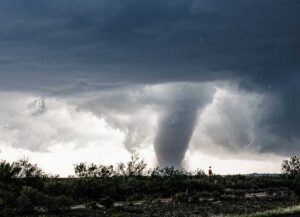GERMS 101: AN INTRODUCTION FOR TRUCK DRIVERS
Robert Dudley, M.D., a physician in New Britain, Connecticut, told The Trucker, “Protecting yourself and others from the coronavirus is a matter of following the same recommendations to avoid any illness. Wash your hands. Use hand sanitizer. And, in the case of the coronavirus, avoid large crowds. Also, keep up with the latest from the Centers for Disease Control and Prevention (CDC).”
You’re probably thinking, that’s all a doctor can say? He doesn’t have access to inside information or recommendations not yet official, but something the CDC might soon release? Unfortunately, the answer is no.
Little information exists about specific measures one can take to prevent contracting or spreading the coronavirus. As of this writing, the best health officials have to offer is to follow the same guidelines recommended to avoid catching a cold or seasonal flu virus. But while most people recognize cold and flu viruses as illnesses everyone will occasionally have to fend off, the coronavirus is a new opponent. With the coronavirus lingering and the germs spreading it — in effect, under orders to infect as many living organisms as possible — increasing your deep-cleaning efforts is a wise move. After all, despite the advice we receive either from doctors or the media, as stated on ScienceAlert.com, “the coronavirus isn’t just like the flu.”
The coronavirus versus the flu: How they differ
According to ScienceAlert, while the coronavirus symptoms include the same aches and pains, sore throat, and fever that accompany the seasonal flu, the illnesses are quite different.
First, while the flu is a widespread illness affecting tens of millions of Americans each year, only 0.01% of flu cases result in death. To date, worldwide statistics suggest the coronavirus mortality rate is as high as 3.5%. Some public-health officials suggest this rate is inflated, but they generally agree the coronavirus mortality rate will probably settle at approximately 1.0%. That means the odds of dying after contracting the coronavirus are 1 in 100 — as opposed to 1 in 1,000 with the flu. The age and health of people who test positive for the disease both play huge roles in mortality rates.
In China, where the coronavirus pandemic began, a sample of 45,000 confirmed cases of the disease indicated death rates far higher among elderly individuals than the rest of the group studied. Officials reported that 14.8% of people age 80 and older who tested positive for the virus died as a direct result of virus-related conditions. In terms of serious but not necessarily fatal cases, 27% occurred in people over age 65, while 41% of victims were under age 50.
Surprisingly few children have tested positive for the disease, and none have died to date, a statistical anomaly being studied in hopes that children have some sort of immunity that will help researchers develop a vaccination against the virus.
While the public usually focuses on the death toll associated with any disease or illness, health officials say the danger of the coronavirus is more a matter of health systems becoming overwhelmed by cases requiring hospitalization and ventilators to support breathing. Hospitals in any city have a limited number of beds — and far fewer ventilators at their disposal.
When discussing the level of contagiousness of the coronavirus as opposed to the flu, researchers estimate that each person testing positive for the flu interacts with numerous people, 1.3 of which will also contract the flu virus. To date, statistics for the coronavirus indicate that for every positive case, two to three additional people will likely test positive. In other words, the coronavirus is approximately twice as contagious as the flu. Of course, each year many Americans are vaccinated against the flu, but the vaccination is not guaranteed to be effective. Of those vaccinated, a sizable number come down with the flu despite their proactive steps.
No vaccination is available to prevent the coronavirus, and depending on who you find credible, researchers suggest no effective vaccine will be available for at least 12 to 18 months. In the meantime, research trials have indicated that antiretroviral drugs may reduce the severity of some cases.
Other experimental therapies are being studied, but the sample sizes are too small for researchers to draw conclusions. While some trials have shown promise, delivering antiretroviral drugs to serious cases, as well as some experimental therapies, their sample sizes are too small to roll out to the general population.
Even if researchers suddenly announced a vaccine against the coronavirus, conducting widespread vaccinations would be a challenge. One researcher stated that the widely available seasonal flu vaccine is not provided to enough people to ensure what he refers to as “herd immunity.”
Although the coronavirus is an entirely different microscopic animal than the flu virus, the two do share some similarities.
As Dudley advised, the best way to protect yourself against either virus, at least at this time, is to practice good personal hygiene and limit interaction with other people. Frequent hand-washing, avoidance of shaking hands and making a conscious effort to avoid touching your face with what may be contaminated hands are all steps people can take to reduce their risk of contracting most contagious illnesses, including stomach viruses, more serious respiratory or gastro illnesses, and many others.
Check back tomorrow for Part 3 of this series, “Information: an overweight load destined for anxiety,” click here.
Since retiring from a career as an outdoor recreation professional from the State of Arkansas, Kris Rutherford has worked as a freelance writer and, with his wife, owns and publishes a small Northeast Texas newspaper, The Roxton Progress. Kris has worked as a ghostwriter and editor and has authored seven books of his own. He became interested in the trucking industry as a child in the 1970s when his family traveled the interstates twice a year between their home in Maine and their native Texas. He has been a classic country music enthusiast since the age of nine when he developed a special interest in trucking songs.









My brother is a Truck driver and just delivered a load to California and started feeling sick on his way back to the East Coast , He is now in Memphis at a truck stop sick for 2 days . How can he get tested for the Coronoavirus ?
Hi Tina.
Not sure if you have found any information out for your brother to be tested in Memphis .
I ran across this article yesterday .
My husband is a trucker as well and this Coronavirus scares the H#ll out of me .
Prayers for you and your family
https://www.google.com/amp/s/www.wmcactionnews5.com/2020/03/21/uthsc-offering-drive-thru-testing-covid-/%3foutputType=amp